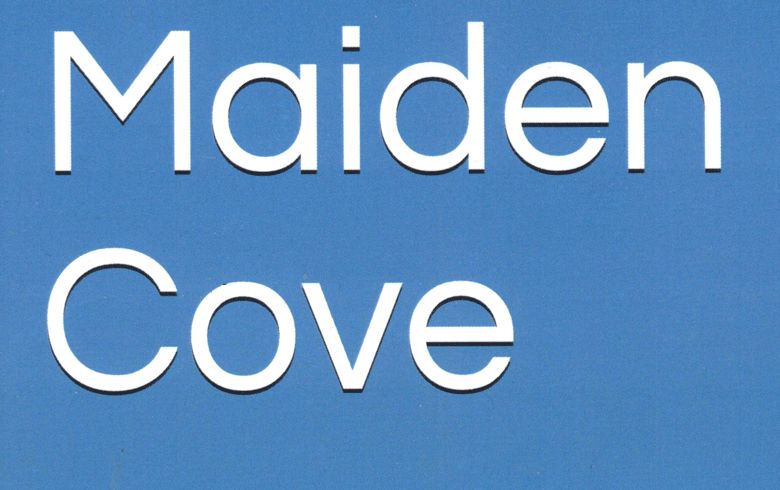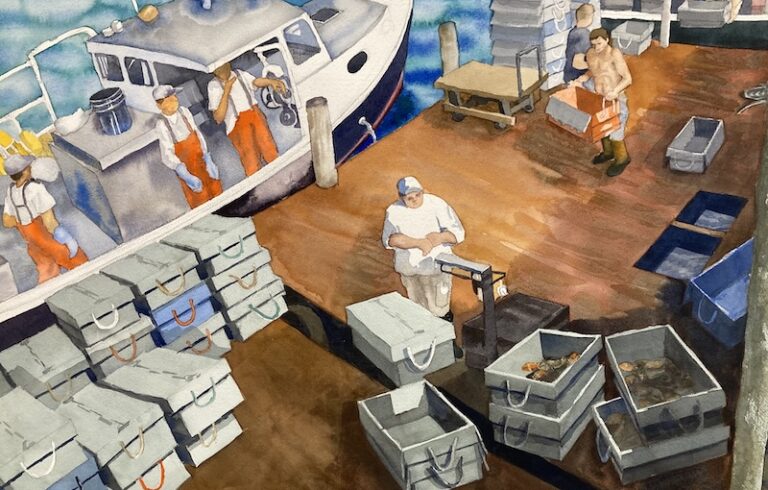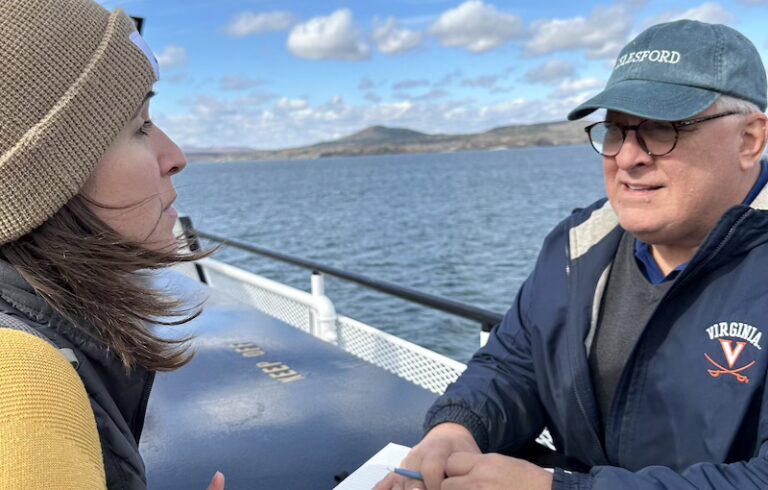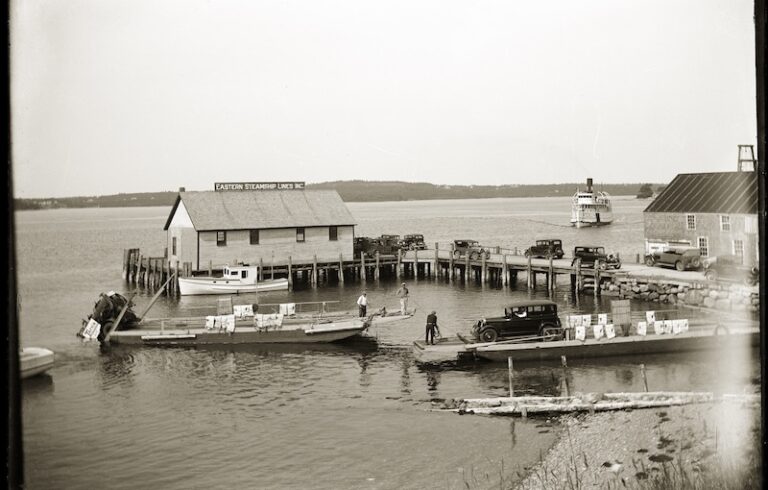Maiden Cove: A Novel
By Roy Knight (2020)
Review by Dana Wilde
Roy Knight grew up just about a stone’s throw from Maiden Cove, right on the channel into Portland Harbor between Cape Elizabeth and Cushing Island. As a teenager in the mid-1960s, he learned lobstering in that channel from a school friend barely older than him.
He was a good student, a starter on a basketball team that played for the state championship, a graduate of Bowdoin College.
After college he spent a while teaching and coaching, but was called back to fishing. He worked on a lobster boat and on a dragger out of Portland, and then as a lobster buyer. He owned a greenhouse in western Maine, and later was a pipefitter.
But if his recent novel Maiden Cove tells us anything about him, it’s that fishing at sea runs as deep as memory will let it. Which is deep.
The story’s narrator, Alan White, is looking back across the decades to his teenage years. Young Alan found himself the third side of a love triangle involving a girl just older than him and his precariously trusting friend James Jordan. We follow the development of Alan’s boyhood crush on sexy, flirtatious Barbara Jean, his confusion as she plays him against James, and the inevitable complications that grow serious by high school.
Alan learns the unwritten laws of fishing territories and how to stand up to two stone-faced, gear-tampering lobstermen.
While the love triangle is the force that drives the plot, the book’s center is the fishing life Alan learns from James, the youngest in an ancestral line of Maine fishermen. James teaches Alan to bait traps, measure lobsters, tie knots, read buoys.
Alan learns the unwritten laws of fishing territories and how to stand up to two stone-faced, gear-tampering lobstermen. A retired fisherman in Alan’s neighborhood, Old Charley, also takes Alan under his wing and teaches him things James can’t yet, including how and when to fish a spot in the channel that only Charley knows about.
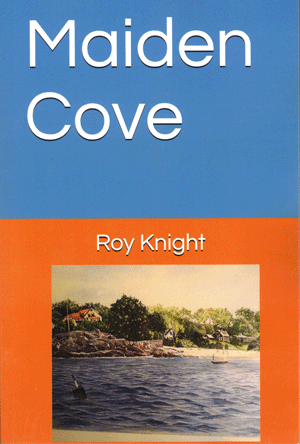
This all adds up, unless I’m mistaken, to Maiden Cove presenting one of the most meticulously detailed fictionalizations we have of lobstering on the Maine coast.
I make this claim on the basis of personal recognition. For one thing, I had a similar, if far less extensive experience of lobstering to Alan’s. And for another thing, the author and I grew up in Cape Elizabeth at the same time, and knew each other. It may or may not be apparent to general readers that Maiden Cove is not only a coming of age story, but also in part an auto-fictional outline of the story of Roy Knight.
Not all of the book’s events actually took place, but readers familiar with Cape Elizabeth of 50 years ago are apt to recognize not only Maiden Cove, but its Casino Beach, Ram Island, Halfway Rock, the Harris Co., the Cookie Jar bakery, St. Alban’s church, WLOB radio, the boys basketball team that played in the state Class B final in the early 1970s.
Even the real names of several real people appear slyly in passing.
A subtheme involving real social tensions between the generations-old fishing-farming community of Maine’s south coast and the encroaching professional class in 1960s also surfaces: James gets taunted as “lobstah boy,” while Alan grapples with his distance from the pretty, upper-crust girls just beyond his reach.
But the book’s elemental force is the shape it gives to boyhood memories of the sea.
“I always knew I’d come back,” the elder Alan reminisces to begin his story as he stands on Land’s End at Bailey Island, “maybe not to this exact spot, but back far enough so that if I could look out on a clear day, I could see across the bay to where everything both came alive and came unraveled. Between here and there lie miles of Casco Bay …”
Maiden Cove is not a fully polished book, but it’s a thoughtful, sometimes wry depiction of a young guy’s real life. An authentic evocation of the brine-soaked, bait-stinking, perilous, deeply moving lobstering life along Maine’s coast.
Dana Wilde is a member of the National Book Critics Circle. He lives in Troy.
